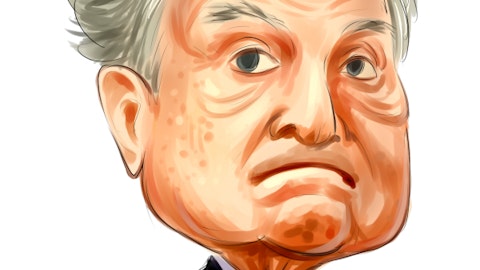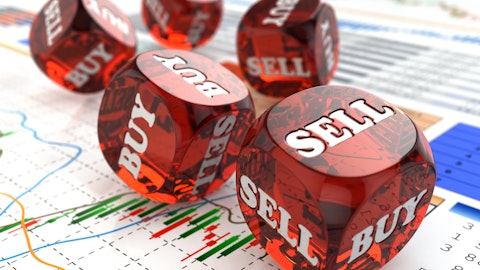Billionaire David Einhorn’s Investor letter is out and he had some things to say about Tesla Inc. (NASDAQ:TSLA), and Brighthouse Financial, Inc. (NASDAQ:BHF). Einhorn’s fund is likely short Tesla while he seems to like Brighthouse Financial. Let’s take a closer look at what the esteemed hedge fund manager had to say.
Our research has shown that hedge funds’ small-cap stock picks managed to beat the market by double digits annually between 1999 and 2016, but the margin of outperformance has been declining in recent years. Nevertheless, we were still able to identify in advance a select group of hedge fund holdings that outperformed the market by 32 percentage points since May 2014 through March 12, 2019 (see the details here). We were also able to identify in advance a select group of hedge fund holdings that underperformed the market by 10 percentage points annually between 2006 and 2017. Interestingly the margin of underperformance of these stocks has been increasing in recent years. Investors who are long the market and short these stocks would have returned more than 27% annually between 2015 and 2017. We have been tracking and sharing the list of these stocks since February 2017 in our quarterly newsletter.

In his letter, Einhorn didn’t have much good to say about Elon Musk’s Tesla Inc. (NASDAQ:TSLA). The hedge fund manager notes that although TSLA ‘routinely touts its cars as the safest around’, ‘the truth is, its overall safety is much lower’ than what some crash tests imply. Some TSLA cars have suspension problems, while a car battery in another car caught on fire. Einhorn writes that TSLA’s inaptly named ‘full self-driving’ modes give false confidence in the car’s capabilities which might make the car riskier. Demand might be softer than expected. Einhorn notes that “while Elon Musk promises annual global demand of 500,000-700,000 Model 3’s, the reality is quite different”. Einhorn writes that if the first quarter is any indication, actual annual global demand for the Model 3 could be around 200,000 vehicles. Einhorn also notes the following:
In addition to lower revenues and profits, the reduced demand creates another problem for TSLA: should car sales fall materially short of TSLA’s estimates, TSLA’s commitment to purchase batteries from Panasonic could become a big problem. Although TSLA does not disclose the details, we can make some assumptions: we estimate that TSLA must purchase about $3 billion of batteries from Panasonic in 2019. If the average TSLA has a 70 kWh battery (based on a mix of Models 3, S and X) and TSLA pays $120 per kWh, the average battery cost per car would be $8,400. On that basis it would take about 360,000 cars to absorb a $3 billion commitment. A more realistic 250,000 cars would create a $900 million shortfall.
Einhorn certainly would like Tesla demand to soften while Elon Musk would like demand for Tesla to be strong. Given how many hurdles Elon Musk has been able to overcome, Tesla might still overcome the seemingly softening demand, however. In terms of Tesla’s price action, Einhorn is winning at least in 2019 as Tesla shares are down around 20% year to date. 23% of Tesla float is short.
While he’s bearish on Tesla, Einhorn likes Brighthouse Financial, Inc. (NASDAQ:BHF). Einhorn notes that BHF has a big buyback program of around $1.5 billion that would translate to around a third of the market cap at around current prices if actually completed. Einhorn does acknowledge that there remain ‘some scenarios in which BHF could fail to meet its buyback target’ but that the fund thinks shares remain ‘considerably undervalued at round 4x 2019 adjusted earnings and 30% of year-end book value’. BHF shares have since risen to around $40 per share from the $36.29 price that Einhorn mentioned in his letter. Einhorn expects BHF to earn around $9 per share in 2019. Some other smart money funds agree with Einhorn. Of the around 700-740 elite funds we track, 24 funds owned $377.8 million of Brighthouse Financial, Inc. (NASDAQ:BHF) on December 31, versus 22 funds and $1.06 billion respectively on September 30.
Disclosure:None





